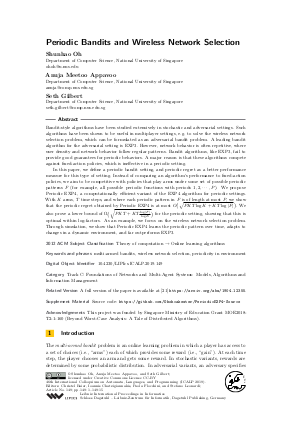LIPIcs.ICALP.2019.149.pdf
- Filesize: 2.1 MB
- 15 pages

 Creative Commons Attribution 3.0 Unported license
Creative Commons Attribution 3.0 Unported license
























Feedback for Dagstuhl Publishing